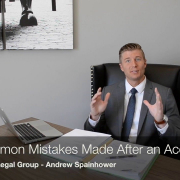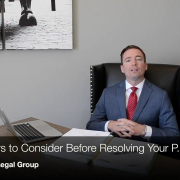5 Dangers of Driving with Utah State-Minimum Insurance
5 Dangers of Driving with Utah State-Minimum Insurance
Utah State Minimum Insurance
The State of Utah requires people to have at least some car insurance in order to drive legally on Utah roads. That is why you show proof of insurance when you get pulled over. The amount that is required is referred to as “state-minimums.” They are not recommended amounts. These are minimum amounts. They are not advised amounts. They are minimum amounts to be legal. Usually when people choose them, they do so because the amount of premium that they pay will be lower. Just because you have barely enough to not be committing a crime does not mean you have enough to be safe and responsible and protect yourself and your loved ones. In reality, the premium is not affected that much to increase the limits to a much safer, more responsible limit. Motorcycle drivers have even more incentive to be aware of their insurance limits.
Choosing the lowest limits can compare to the situation where if you have only one drink of alcohol you may still be below the blood alcohol level that would register you for a DUI, so its legal, however drinking alcohol and then getting behind the wheel of a car is not advised. Even if you are below the legal limit. Everyone knows that this is not recommended but some still try to beat the odds and do it anyway. Carrying low liability limits on your auto insurance is a similar risk in that although it is legal it is still not advised. It is dangerous to carry low amounts of coverage on your car and this article will explain why.
Southern Utah Personal Injury Lawyer Discusses Car Insurance
The information below is written by a St George Ut Personal Injury Attorney. Auto Accident Attorneys in Southern Utah deal with auto insurance policies everyday, so at McMullin Injury Law, we know how these policies work. If you are looking to buy more insurance, don’t call us, we don’t sell it, we just help people deal with claims.
1. The Danger of carrying only 25/65 in bodily injury liability coverage.
Bodily injury liability coverage is the type of insurance that protects it’s own insured when they injure someone else in a car accident. That is why it is called liability coverage. If you hurt someone and you are responsible for their bodily injury, they then have a lawsuit against you. Because they have a valid case against you, your liability policy on your automobile insurance then steps into your shoes and has the contractual duty to you to protect you from this personal injury claim. Your insurance company will either need to settle it or resolve it or pay for legal defense to defend you against the suit. Either way, they indemnify you or protect you from having to pay for your own attorneys or having to pay out of your own pocket to settle the case.
When you have the state minimum requirements for liability coverage which are 25/65, that means that you have coverage for up to $25,000 per person and $65,000 per incident. The incident could be that you seriously injure a family of seven in a huge van. There is only $65,000 now to protect you against the claims from all seven of those injured claimants. It’s very likely that that family is not going to be happy with that amount. It is likely not even going to be enough money to cover their hospital and therapy bills let alone any general damages. They will have no recourse but to file a lawsuit against you. They would probably get a judgment against you for well above the amount of $65,000 and your insurance will only pay up to that limit. Now you will be personally liable for the difference. The court can order that your wages be garnished. They can put liens on your property. They can potentially take away your life savings and everything that you have worked to achieve for an accident that happened in a split second. That is the danger of carrying low limits of liability on your car insurance. You should always be insured up to an amount that is more than enough to protect you even in the case of very serious injuries that one day you might accidentally cause. No one intends to hurt other people. People will be upset when they get sued but the truth is, when you hurt someone and your insurance is terrible, you are really giving them no meaningful choice other than to sue you. Otherwise they will be left bearing the brunt of the costs of all of their injuries that they did not cause and they did not choose to have. It is your fault.
2. The dangers of having only $15,000 in property liability coverage
This is another form of liability coverage. It protects you from being sued when you damage someone else’s property while driving a car. It is the limit that your insurance will pay to someone else should you damage their vehicle in an accident that is your fault. Let’s say that you smash into a $40,00 SUV and you total it. Now their vehicle needs to be replaced but you only have the state minimum requirement of $15,000 for property damage. You are now responsible for the balance of $25,000. They will have little to no recourse but to sue you for that difference. $15,000 worth of damage can happen with a lot less of an impact in a crash than people think. If you have an expensive vehicle, and your cause a significant amount of damage to it, you can hit that $15,000 limit pretty easily. Especially if the damage bends the body frame and renders the vehicle non-drivable or affects the engine.
3. The dangers of having only the required $3,000 in PIP
PIP is the abbreviation for Personal Injury Protection. PIP is Utah’s form of what is called med pay insurance. Med pay insurance is no-fault insurance. It exists on the policy to pay the initial medical bills for anyone that suffers an injury regardless of fault. So this covers your own injuries on the insurance of the vehicle that you are in. You might not be at fault for the accident but your PIP will come in and pay any of your medical bills. In Utah it is required that you carry only $3,000. In many states they don’t require that you carry any coverage for med pay at all.
*Motorcycle Accident –
If you drive a motorcycle, Utah law does not even require you to have PIP, but it should.
Unfortunately, it is dangerous to be carrying the state minimum requirement because $3,000 can be gone extremely quickly. Let’s say that you were to get in an auto accident and hit your head and then you were having problems at the scene of the accident. You were not feeling well enough to drive your car, so an ambulance takes you to the emergency room to make sure that you are going to be ok. Head injuries can be extremely scary. Now you will have a bill from the ambulance and a bill from the emergency room. You were treated for a head injury so they probably ran a series of very expensive diagnostic tests to make sure you are ok. You will probably already have exceeded your $3,000 in PIP coverage. Now, if your were at fault for the crash, the balance of the medical bills falls to you to pay out of your own pocket.
This PIP coverage also applies to each person that you have in your own vehicle. A separate $3,000 per person in coverage. So if you are driving around four friends and you lose control of your vehicle in snow or ice and go off the road into an embankment, you are now responsible for their medical bills. Each passenger would only have a total of $3,000 for medical costs and anything above that, you would need to pay for. This type of thing can happen even to very good drivers. That would be a terribly stressful and sad situation to have your friends injured and not have adequate coverage to pay for their medical expenses.
4. The danger of not having comprehensive and collision coverage for your own vehicle
The danger of not having comprehensive and collision coverage on your policy is that you would have no coverage on your own vehicle should it be damaged in an accident. In Utah the only coverages that are required on your auto insurance are the liability limits of 25/65/15, meaning $25,000 per person, $65,000 per accident, $15,000 for property damage and PIP coverage of $3,000. You are not required by law to have comprehensive and collision coverage for your own vehicle. I guess law makers don’t feel like they have to protect you from yourself. They just want to protect other people from you.
Collision coverage covers the damage to your own car in the event of an accident whether you are at-fault or not. It is by contract so it doesn’t matter if you are at fault or not.
Comprehensive coverage is what is sounds like. It is comprehensive coverage for your property damage. It applies to damages caused by things other than collisions. As in the Allstate commercials when mayhem strikes and something falls on your vehicle, like a tree branch, then comprehensive coverage is what will cover that damage. Other acts of nature would also be covered such as hail storms or wind storms that blow things on top of your car. Vandalism and fire are also situations that are covered by comprehensive coverage.
You don’t have to have either of those coverages unless you have a loan on your car. If you do have a loan on your car, your lienholder, the lender, will require that you carry both comprehensive and collision coverage on your vehicle. They will require that your insurance send them proof of that coverage. If your insurance ever lapses, your insurance agency will notify your lender that is has lapsed. If this happens, your lender can add their own insurance on to your loan amount and this is very expensive. They are smart and they want to protect their asset. They understand that if your car is wrecked, you are not going to want to pay for it.
People who do not have loans on their cars are not required to carry this insurance on their vehicles. The danger of not having it is that in the event you are in accident and it is your fault, you will not have any coverage on that vehicle. You will need to pay for the repairs or replacement yourself. You will need to decide if you can afford to replace your vehicle yourself should something happen to it.
You could have a situation arise where your vehicle is damaged but it wasn’t your fault but no one else’s insurance will cover the damages either. You could have your car parked at a mall and when you finish your shopping and return to it you could find the whole side dented in. Someone could hit your car and drive away. Now you have significant damage to your car and though you are not at fault, it would be your collision coverage that would pay for it.
These coverages tend to be the expensive ones to carry on your policy. This is because the premium for these coverages is based on the value of your automobile. The newer and fancier your car, the higher the premium for these coverages will be. Both of these coverages carry a deductible amount. You can choose the deductible amount and the higher the deductible the lower the premium for the coverage. A $250 deductible would be more expensive than a $500 deductible. Were you to have a loss of $1,200, your deductible of $500 would be subtracted from the amount due to you for the repairs and you would receive $700 toward your expenses.
5. The dangers of not having any UM or UIM coverage
The last danger we will discuss is not having UM or UIM coverage on your policy. Both of these are optional to your policy. Um refers to uninsured motorist and UIM refers to underinsured motorist. Underinsured motorist applies when you are hurt by another driver and they are not carrying insurance on their vehicle or it may be a hit and run situation and you don’t even know who hit you. Underinsured motorist coverage applies when you are hurt to an extent where your case is worth in excess of the amount of liability coverage that the at-fault driver carries. The dangers of not having those forms of coverage is that you can be hurt by a hit and run or by one of the thousands of Utah drivers that carry inadequate insurance on their vehicles. Think about it, the best person to protect your interests and your body is you. Don’t count on somebody else to do that. The very people who are irresponsible enough to choose the lowest possible limits on their policy to save a few bucks are probably the very ones that will be driving irresponsibly on the roads and causing accidents. You don’t want to rely on some bad driver out there that they will be wise enough to carry proper limits on their policy.
Attorneys see auto injury cases all the time where the injured person has sustained life-changing injuries and the at-fault driver has the lowest possible limits or liability or was driving illegally with no insurance. This is where the UM/UIM coverage can make all the difference. This coverage is really very inexpensive and well worth the few dollars that it adds to your premium.
Take the time to discuss each of these coverages with your insurance agent and be sure that you have adequate insurance for your needs now and in the future. Don’r drive with Utah State minimum insurance.
McMullin Injury Law is in Southern Utah and we are here to help. Give us a call at 435-673-9990. Our primary focus is helping car accident victims in St. George and Cedar City, Utah.
This article and others on this site do not constitute a legal opinion or advice. Interactions on this website do not create an attorney-client relationship and do not serve as a replacement for consulting with an attorney. McMullin Injury Law expressly disclaims all liability relating to actions taken based on contents of this site. This article is for general education purposes, if you are seeking legal advice, contact an attorney.







